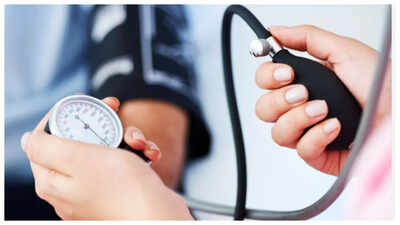ARTICLE AD BOX

For people with elevated blood sugar levels, (prediabetes or diabetes), monitoring is extremely important, since it helps them keep track of their levels, both fasting and non fasting, and helps the doctor adjust their medications.
When it comes to high blood sugar in the morning, it can be worrying, (more so, if one is not a diabetic) as the body is in fasting mode and a high reading can feel unsettling. Let's find out more...What Is Morning High Blood SugarBlood sugar, or glucose, is the main source of energy for your body. It comes from the food you eat and is carried in your blood to your cells. Normally, your body keeps blood sugar levels within a healthy range by using insulin, a hormone that helps sugar enter your cells, and keeps it at an optimum level.

In the morning, some people experience higher-than-normal blood sugar levels, even if they didn’t eat anything overnight. This is called “morning hyperglycemia” or the “dawn phenomenon.”Why Does Blood Sugar Rise in the MorningSeveral factors cause your blood sugar to go up in the morning:Hormonal ChangesBefore you wake up, your body releases hormones like cortisol, growth hormone, and adrenaline. These hormones help you get ready for the day by increasing energy.
But they also make your liver release stored sugar into your blood, which can raise your blood sugar levels.Dawn PhenomenonThis natural rise in blood sugar happens between 2 a.m. and 8 a.m. as part of your body’s internal clock. It prepares you to wake up and be active, but in people with diabetes or insulin resistance, the body may not handle this sugar release well, leading to high morning blood sugar.Insulin Resistance or Lack of InsulinIf your body doesn’t use insulin properly or doesn’t make enough of it, blood sugar can build up overnight.
This is common in type 2 diabetes and some cases of type 1 diabetes.Eating a heavy meal too close to bedtimeEating heavy meals or sugary snacks close to bedtime can cause blood sugar to stay high overnight and into the morning.Other FactorsStress or illness can raise blood sugar.Certain medications may affect blood sugar control.Poor sleep or sleep disorders can also impact blood sugar levels.

Why Is Morning High Blood Sugar a ConcernHigh blood sugar in the morning can make it harder to control your overall blood sugar throughout the day.
If left untreated, it increases the risk of diabetes complications like heart disease, kidney problems, nerve damage, and vision loss.How Do You Know If You Have Morning High Blood SugarYou may not feel symptoms if your blood sugar is only slightly high. The best way to know is to check your blood sugar with a glucose meter:Test your blood sugar right after waking up, before eating or drinking anything.Record your readings to share with your doctorIf your fasting blood sugar is consistently above 130 mg/dL (7.2 mmol/L), it may signal an issueWhat Can You Do About High Blood Sugar in the Morning?There are many ways to lower your morning blood sugar and keep it under control.Take your medicinesTake your diabetes medicine or insulin exactly as prescribed.Sometimes, adjusting the timing or type of medication can help control morning blood sugar. Always talk to your doctor before making changes.Be mindful of dinnerAvoid heavy, high-carb, or sugary foods late at night. Choose balanced meals with protein, healthy fats, and fiber to slow sugar release.Stay activeRegular exercise helps your body use insulin better and lowers blood sugar.
Even a short walk after dinner can improve overnight blood sugar control.Manage StressStress hormones raise blood sugar. Try relaxation techniques like deep breathing, meditation, or gentle yoga.Get Quality SleepAim for 7–8 hours of restful sleep. Treat sleep problems like sleep apnea, which can affect blood sugar.SourcesThe American Diabetes Association (ADA)WebMDThe Cleveland ClinicDisclaimer: This article is informational only and not a substitute for medical advice. Always consult a medical professional if you have high blood sugar



.png)
.png)
.png)
















 4 hours ago
5
4 hours ago
5









 English (US) ·
English (US) ·